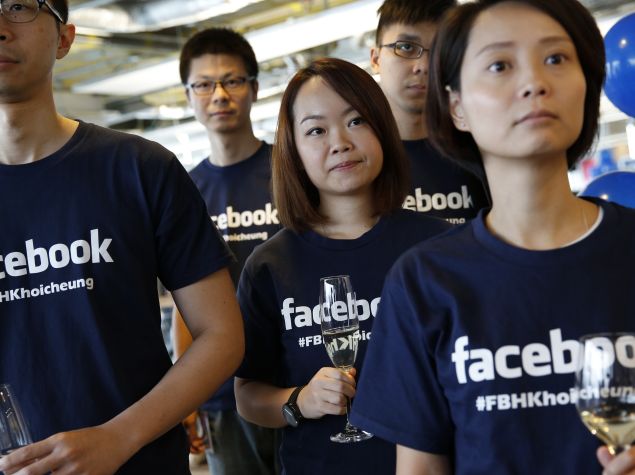- Home
- Others
- Others News
- Apple, Facebook Will Pay for Female Employees to Freeze Their Eggs
Apple, Facebook Will Pay for Female Employees to Freeze Their Eggs

From January, Apple will pay both full- and part-time employees up to $20,000 for procedure and storage costs for female employees to freeze their eggs.
"We continue to expand our benefits for women, with a new extended maternity leave policy, along with cryopreservation and egg storage as part of our extensive support for infertility treatments," Apple said in a statement. "We want to empower women at Apple to do the best work of their lives as they care for loved ones and raise their families."
NBC News reported on Tuesday that Facebook recently began covering egg-freezing for non-medical reasons, making it one of the first major employers in the technology sector to do so.
Egg freezing is a pricey but increasingly popular option for women. It enables women to delay child bearing. The procedure is also used by women who have to undergo medical treatments that interfere with fertility such as with cancer.
The procedure typically costs up to $10,000, with an additional $500 for storage each year.
In the raging war for talent, Silicon Valley companies are offering an array of new family-planning perks. Apple said it also reimburses eligible expenses associated with the legal adoption of a child.
The news has sparked debate on social media. Some commentators say these companies should focus their efforts on creating a more balanced culture, with more flexibility for new parents. Apple recently introduced new benefits including extended parental leave.
© Thomson Reuters 2014
Get your daily dose of tech news, reviews, and insights, in under 80 characters on Gadgets 360 Turbo. Connect with fellow tech lovers on our Forum. Follow us on X, Facebook, WhatsApp, Threads and Google News for instant updates. Catch all the action on our YouTube channel.
- Samsung Galaxy Unpacked 2026
- iPhone 17 Pro Max
- ChatGPT
- iOS 26
- Laptop Under 50000
- Smartwatch Under 10000
- Apple Vision Pro
- Oneplus 12
- OnePlus Nord CE 3 Lite 5G
- iPhone 13
- Xiaomi 14 Pro
- Oppo Find N3
- Tecno Spark Go (2023)
- Realme V30
- Best Phones Under 25000
- Samsung Galaxy S24 Series
- Cryptocurrency
- iQoo 12
- Samsung Galaxy S24 Ultra
- Giottus
- Samsung Galaxy Z Flip 5
- Apple 'Scary Fast'
- Housefull 5
- GoPro Hero 12 Black Review
- Invincible Season 2
- JioGlass
- HD Ready TV
- Latest Mobile Phones
- Compare Phones
- Vivo V70
- Vivo V70 Elite
- Google Pixel 10a
- Tecno Camon 50
- Tecno Camon 50 Pro
- Lava Bold N2
- Vivo V60 Lite 4G
- Tecno Pova Curve 2 5G
- Asus Vivobook 16 (M1605NAQ)
- Asus Vivobook 15 (2026)
- Infinix Xpad 30E
- Brave Ark 2-in-1
- boAt Chrome Iris
- HMD Watch P1
- Xiaomi QLED TV X Pro 75
- Haier H5E Series
- Asus ROG Ally
- Nintendo Switch Lite
- Haier 1.6 Ton 5 Star Inverter Split AC (HSU19G-MZAID5BN-INV)
- Haier 1.6 Ton 5 Star Inverter Split AC (HSU19G-MZAIM5BN-INV)


![[Partner Content] OPPO Reno15 Series: AI Portrait Camera, Popout and First Compact Reno](https://www.gadgets360.com/static/mobile/images/spacer.png)









